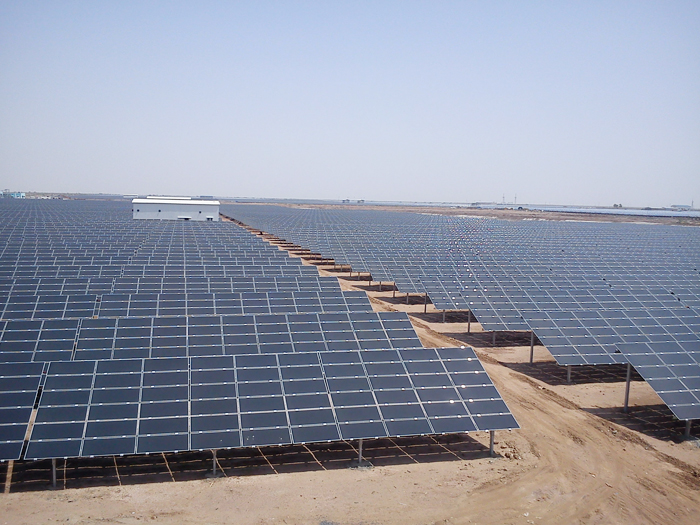The U.S. power group and the Japanese industrial giant will jointly supply a 10 MW Advancion energy storage bank to help integrate renewables such as solar into a grid network operated by Tata Power Delhi Distribution (Tata Power-DDL) in New Delhi.
“For a rooftop solar program to be successful, it is important for the distribution network to integrate it with energy storage solutions to take care of power generation spikes and fluctuations, system stability, reactive power compensation and grid emergencies,” Tata Power-DDL chief executive Praveer Sinha said in an online statement. “This will prove to be an important learning for developing integrated rooftop solar and storage solutions for India.”
The storage array will be used to demonstrate peak load management, while improving system flexibility and reliability for more than 7 million people.
“This is the first grid-scale project in India, and part of a larger global trend to solve critical infrastructure challenges using battery-based energy storage,” AES said. “(It) helps Tata Power-DDL move the Delhi region towards a clean, unbreakable power grid.”
India faces a huge grid-integration challenge over the next five years, as it is expected to install as much as 160 GW of solar and wind capacity into the grid. “Energy storage will play a critical role in ensuring its integration into the grid,” AES said, noting issues such as transmission congestion and potential power outages resulting from sudden drops in voltage.
AES and Mitsubishi will build the Advancion storage bank in Rohini, Delhi at a Tata Power-DDL facility. It will be operational by the end of this year.
(Author: Brian Publicover)
This content is protected by copyright and may not be reused. If you want to cooperate with us and would like to reuse some of our content, please contact: editors@pv-magazine.com.



1 comment
By submitting this form you agree to pv magazine using your data for the purposes of publishing your comment.
Your personal data will only be disclosed or otherwise transmitted to third parties for the purposes of spam filtering or if this is necessary for technical maintenance of the website. Any other transfer to third parties will not take place unless this is justified on the basis of applicable data protection regulations or if pv magazine is legally obliged to do so.
You may revoke this consent at any time with effect for the future, in which case your personal data will be deleted immediately. Otherwise, your data will be deleted if pv magazine has processed your request or the purpose of data storage is fulfilled.
Further information on data privacy can be found in our Data Protection Policy.